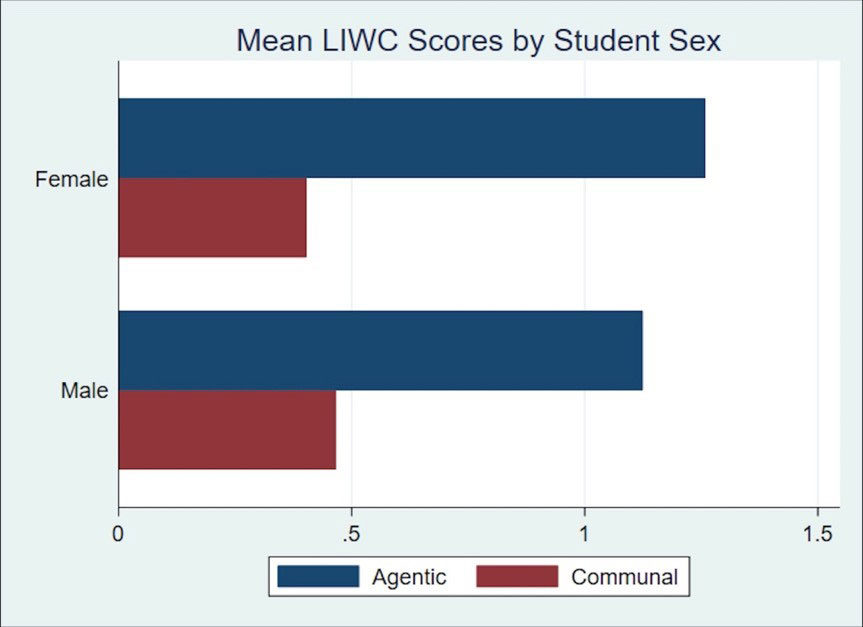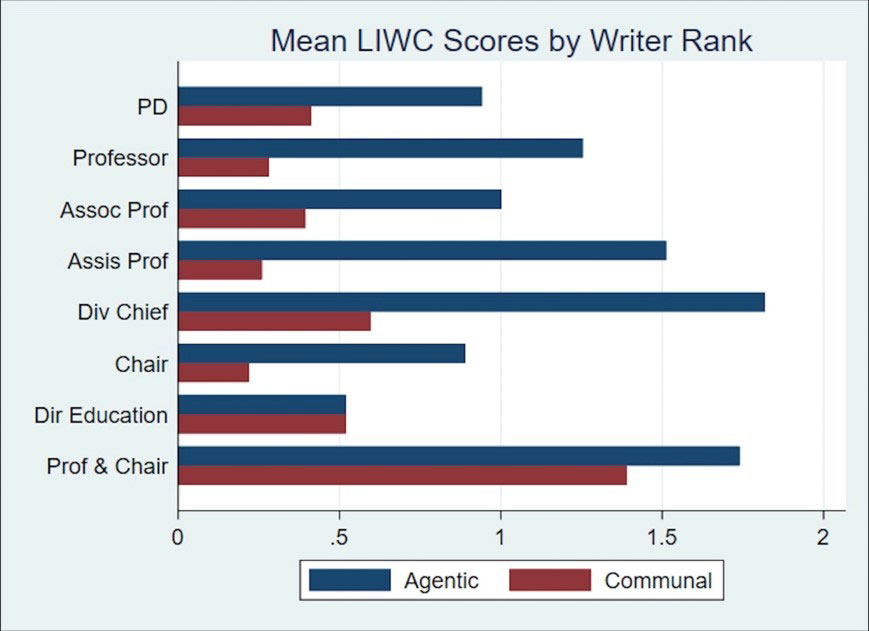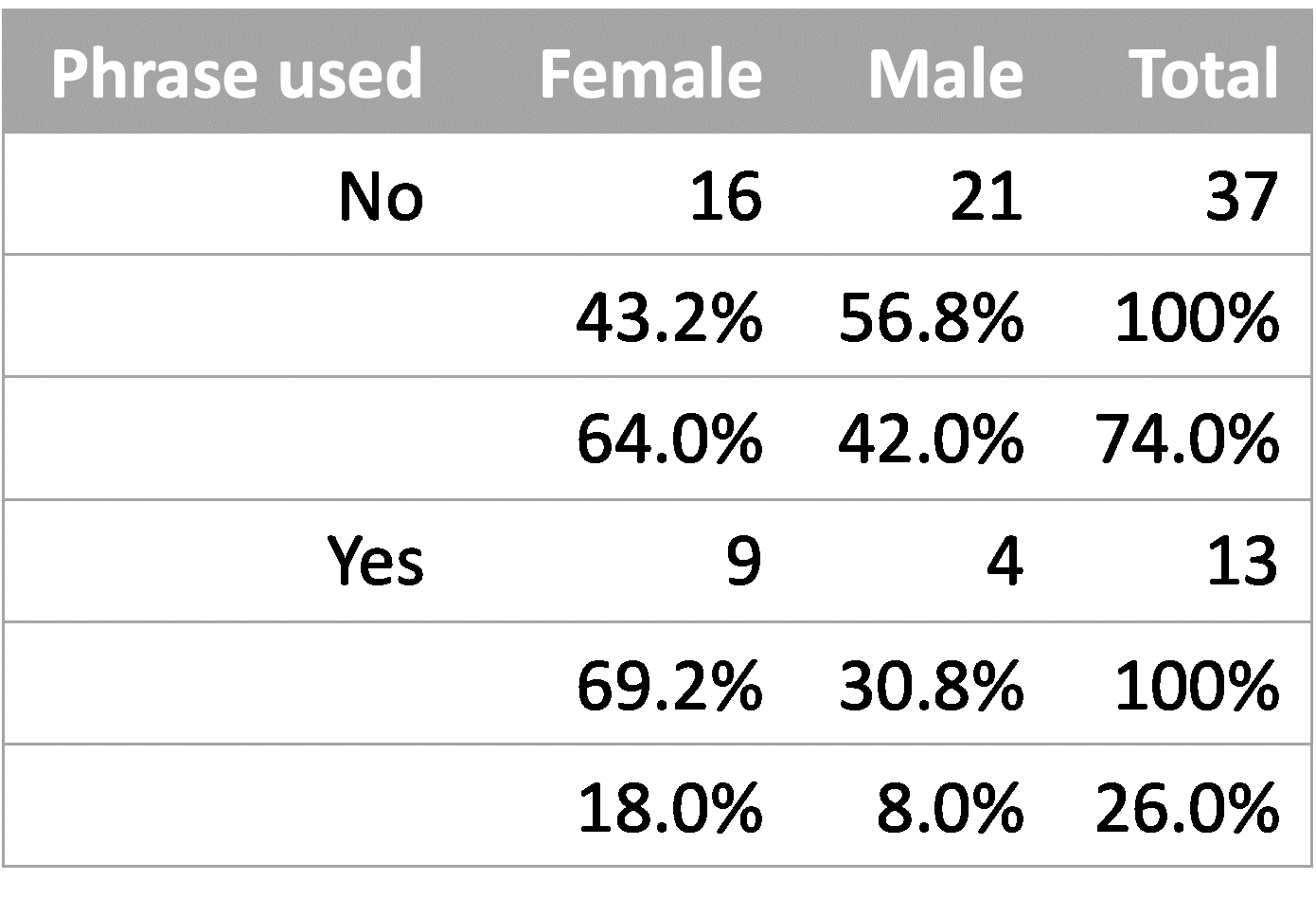Session Information
Session Type: Poster Session A
Session Time: 1:00PM-3:00PM
Background/Purpose:
- The importance of letters of recommendation (LoR) grow each year. It is more important than ever that LoR are written in an unbiased manner and objectively evaluate the quality of each candidate.
- In a recent study of LoR written for individuals applying to a single transplant surgery fellowship from 2007 to 2017, female applicants’ letters were significantly more likely to contain communal terms (i.e. compassionate, nurturing, humble) than LoR for males. These terms have been suggested to negatively impact the hiring and promoting process when included in LoR, as compared to the use of agentic terms (i.e. superb, intelligent, exceptional).
- A 2020 study found that applicants from ethnic/cultural backgrounds that are underrepresented in medicine were significantly less likely to contain standout descriptors ( i.e. outstanding, remarkable).
To investigate for implicit linguistic biases in letters of recommendation written for applicants applying to our rheumatology program, and to determine if differences in gender and race exist between the applicants. Additionally, compare these results to the gender, race, academic rank, and position of the letter writers.
Methods:
- Letters of recommendation were blinded by an independent party to prevent implicit bias on the part of the researcher
- The letters were then analyzed using the Linguistic Inquiry and Word Count (LIWC2015) software program, which automatically scans the letters for words and phrases of our choosing (agentic and communal terms)
- The letters were then run through a publicly available gender calculator (http://slowe.github.io/genderbias/) to find any gender specific terms that the LIWC2015 might have missed
- Each letter was read by a researcher to find any linguistic nuances unable to be unearthed by a computer program
Results:
- As shown in Figure 1, our preliminary results indicate that contrary to published studies, in UNMC’s rheumatology department, letters of recommendation (LoR) written for female applicants were more likely to contain agentic terms, and LoR written for male students were more likely to contain communal terms. However, overall letter writers were more likely to use agentic terms than they were to use communal terms, regardless of gender.
- Figure 2 indicates that the differences in use of agentic and communal terms were consistent across most ranks.
- ”Without Hesitation/Reservation” was a standout phrase noticed during analysis. Table 1 indicates that as comparable to the LIWC results, female letters were more likely than male letters to contain this phrase.
- In review of our demographic data, it was revealed that our applicants’ races were 46% white, 14% Indian, and more than 10 other nationalities. Our applicants came from 9 various countries, with 68% coming from the US and 10% from the Indian sub-continent. The mean age of our applicants was 32.9.
Conclusion: This small sample size of 50 letters limits the extent of our conclusions. However, results were consistent across multiple analytical platforms, suggesting the need for further study to determine if letters of recommendation and letter writers for applicants applying to the UNMC division of Rheumatology are different than that of other disciplines.
To cite this abstract in AMA style:
Kramer M, Cannella A, Sayles H, Hearth-Holmes M. Linguistics Biases in Letters of Recommendation Written for Rheumatology Fellowship Applicants [abstract]. Arthritis Rheumatol. 2022; 74 (suppl 9). https://acrabstracts.org/abstract/linguistics-biases-in-letters-of-recommendation-written-for-rheumatology-fellowship-applicants/. Accessed .« Back to ACR Convergence 2022
ACR Meeting Abstracts - https://acrabstracts.org/abstract/linguistics-biases-in-letters-of-recommendation-written-for-rheumatology-fellowship-applicants/



